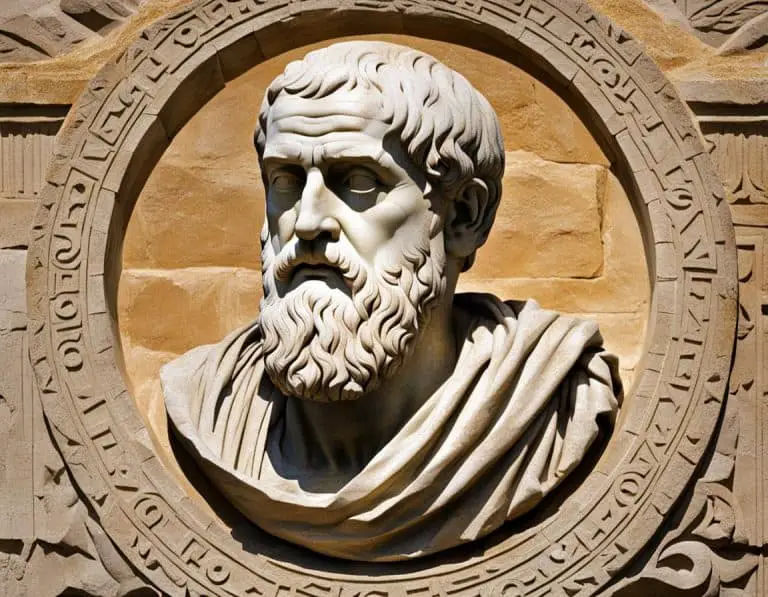Justice and Virtue in Plato’s Philosophy
Plato’s philosophy delves deeply into the concepts of justice and virtue, emphasizing their pivotal roles in creating an ideal society. For Plato, justice is not just a legal construct but a fundamental element that governs the harmony and balance within a community. In his famous work “The Republic,” Plato argues that a just society is one where each individual fulfills their unique role within a hierarchy based on wisdom, courage, moderation, and justice.
Furthermore, Plato believed that true virtue lies in knowledge and self-awareness, asserting that one can only be truly virtuous if they have a deep understanding of the nature of reality and the ultimate good. In Plato’s view, virtues such as courage, wisdom, and moderation are interconnected and essential for individuals to lead a harmonious and fulfilling life. By focusing on the cultivation of inner virtues, Plato envisioned a society where individuals strive for excellence in both their personal and collective endeavors.
Analysis of Virtuous Governance in Plato’s Political Ideals
Plato, the renowned ancient Greek philosopher, articulated his vision of virtuous governance through his seminal work “The Republic.” Central to Plato’s political ideals was the concept of philosopher-kings ruling with wisdom and justice. In Plato’s view, these philosopher-kings would possess a deep understanding of the ideal forms of truth and goodness, enabling them to govern virtuously and harmoniously for the betterment of society.
Furthermore, Plato emphasized the importance of a structured society where each individual’s role was determined by their natural abilities and aptitudes. This stratified society, outlined in “The Republic,” aimed to ensure that the state functioned smoothly and efficiently. The division of labor and specialization of skills were pivotal components in Plato’s vision of virtuous governance, fostering a balanced and productive society under the guidance of philosopher-kings.
Criticisms of Plato’s Political Thought
Overall, Plato’s political thought has faced significant criticism throughout history for various reasons. One of the primary critiques revolves around the idea that Plato’s ideal state is not feasible in reality. Many argue that his notion of philosopher-kings ruling a society based on strict hierarchy and limited individual freedoms is too utopian and impractical to implement in the messy complexities of the real world.
Additionally, Plato’s authoritarian leanings have been a point of contention for many scholars and philosophers. His belief in a rigid caste system and the suppression of individual desires in favor of the common good has been criticized as oppressive and dehumanizing. Critics point out that Plato’s emphasis on reason and intellect as the ultimate virtues neglects the importance of personal autonomy and diversity in a flourishing society.
Evaluation of Contemporary Critiques on Plato’s Political Philosophy
Contemporary critiques on Plato’s political philosophy shed light on various aspects that have sparked debate among scholars and policymakers alike. One common critique revolves around Plato’s belief in the philosopher-king as the ideal ruler in a society. Critics argue that this notion is impractical and could lead to totalitarianism, emphasizing the dangers of concentrating power in the hands of a select few based on their intellectual prowess alone.
Moreover, another contemporary critique questions Plato’s strict hierarchical view of society, where individuals are assigned roles based on their innate talents and abilities. Critics argue that such a system could perpetuate inequality and stifle social mobility, limiting opportunities for individuals to pursue their own paths and aspirations. By examining these critiques, we can better understand the nuances of Plato’s political philosophy and its implications for modern governance.
Legacy of Plato’s Political Philosophy
Plato’s political philosophy has left a lasting legacy on Western political thought and governance. His exploration of justice, virtue, and governance continues to influence political theorists, policymakers, and leaders across the globe. By emphasizing the importance of ethical leadership and the pursuit of the common good, Plato laid the foundations for the development of political systems that prioritize the well-being of society as a whole.
Moreover, Plato’s emphasis on the role of reason and wisdom in governance has shaped the way we conceptualize effective leadership and decision-making in the political sphere. The idea that rulers should be guided by knowledge and philosophical insight resonates in contemporary debates on the qualities of good political leadership. Plato’s legacy serves as a reminder of the enduring relevance of ancient philosophical ideas in shaping modern political discourse and institutions.
Influence of Plato’s Ideas on Western Political Thought and Governance
Plato’s ideas have undeniably left a profound mark on Western political thought and governance. His concept of the philosopher-king, a ruler who possesses both wisdom and virtue, has resonated through the centuries. This idea of leadership based on intellectual and moral excellence has influenced various political systems and theories, shaping the way we perceive good governance.
Furthermore, Plato’s emphasis on justice, harmony, and the common good as essential components of a well-ordered society continues to impact political discourse. The idea that individuals should strive for the collective welfare of the community reflects in modern political ideologies and policies. Plato’s legacy serves as a reminder of the enduring importance of ethical leadership and the pursuit of the common good in shaping successful political systems.
Related Links
How to Implement Plato’s Political Ideas Today
Roundup: Political Themes in Plato’s Philosophy
